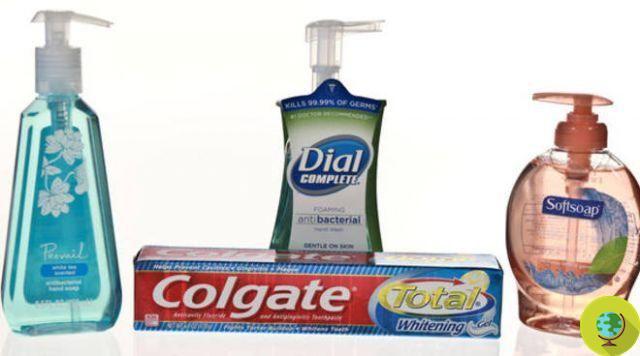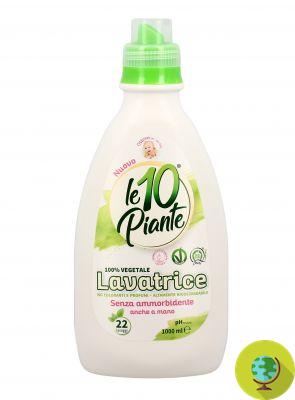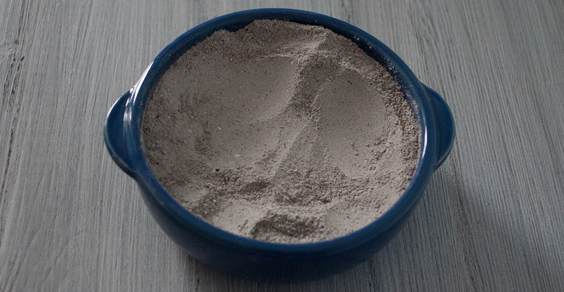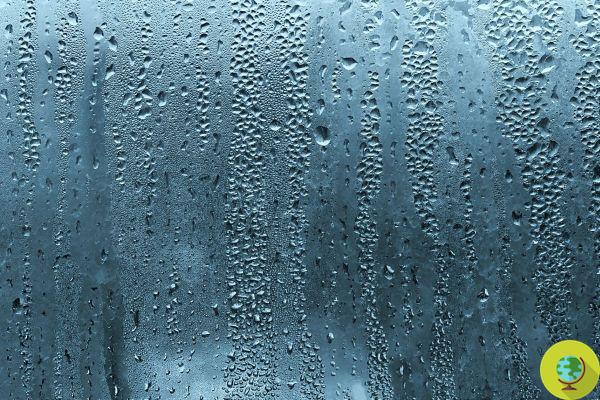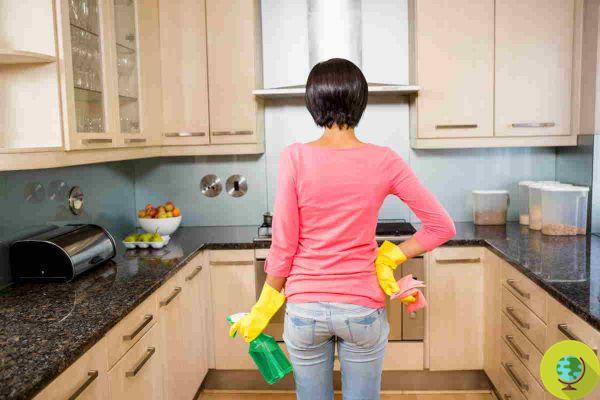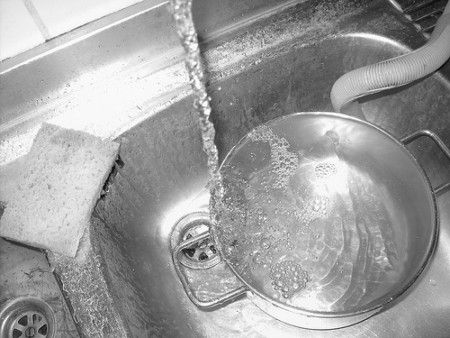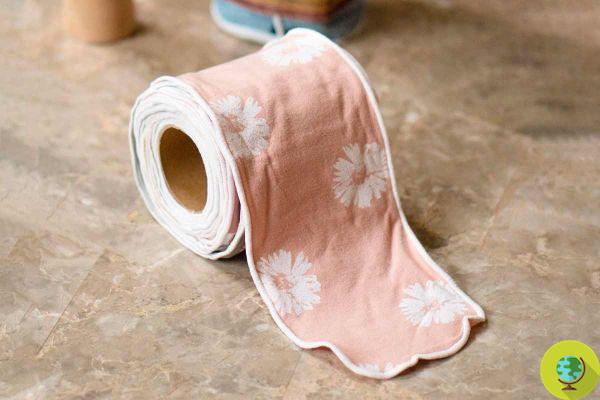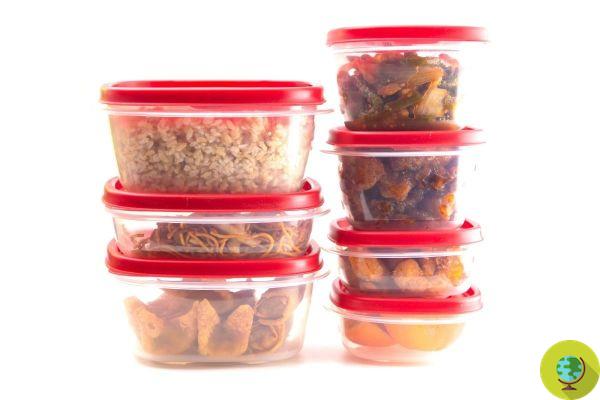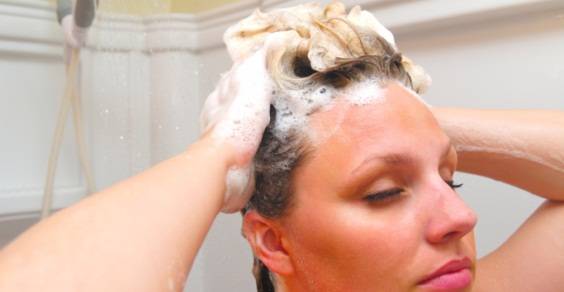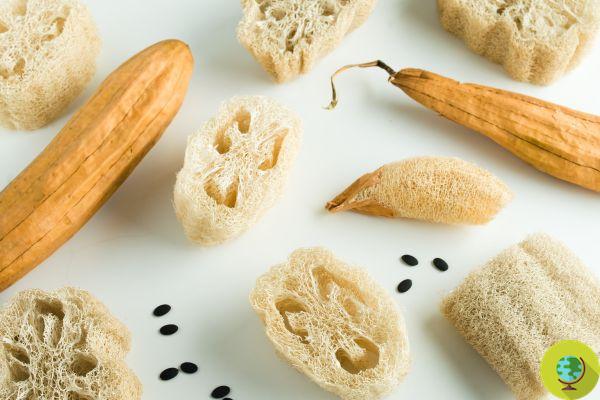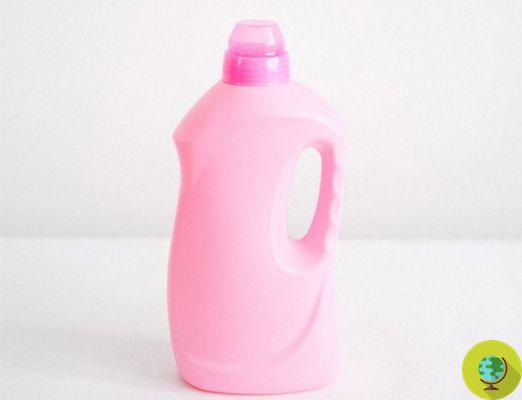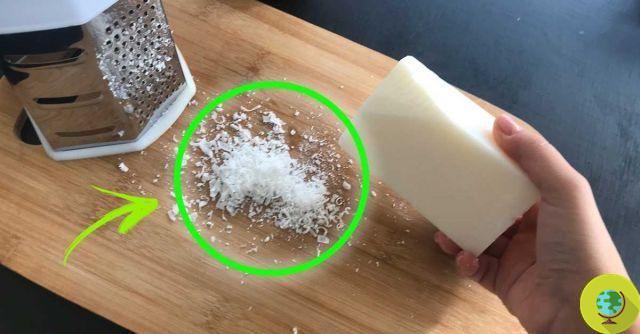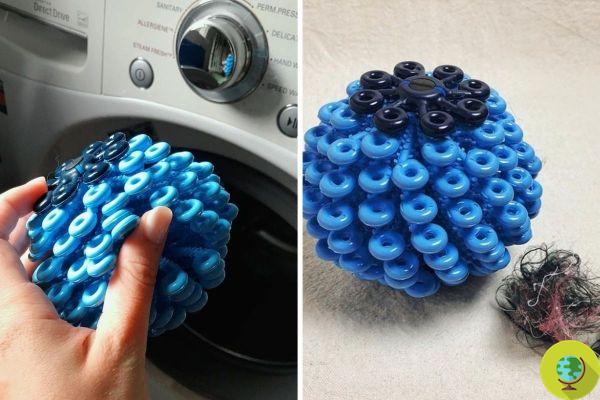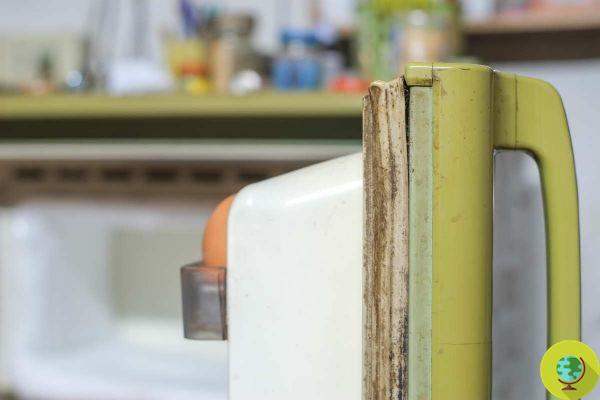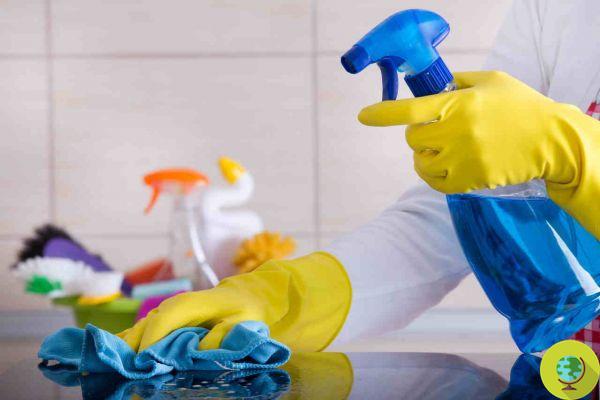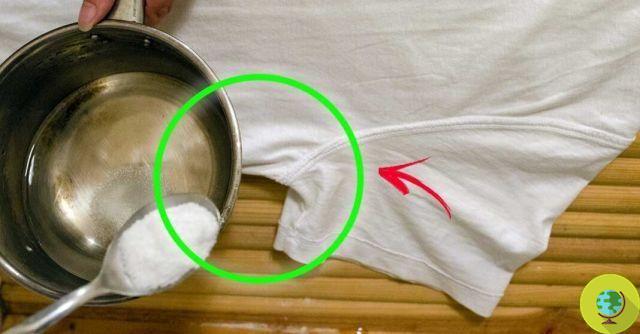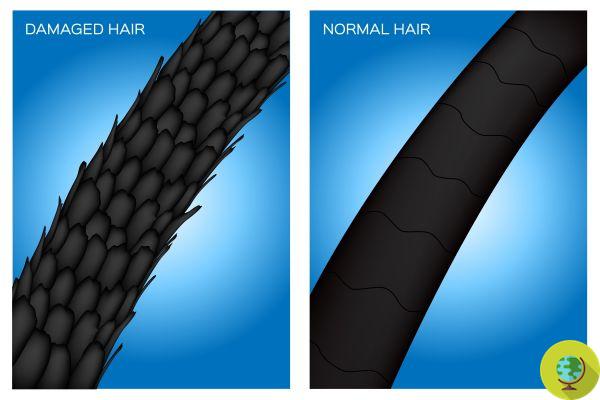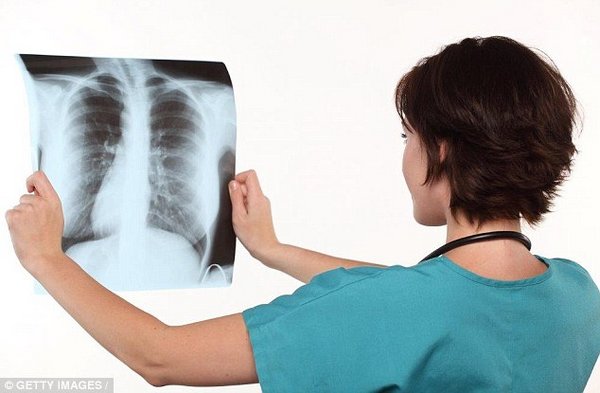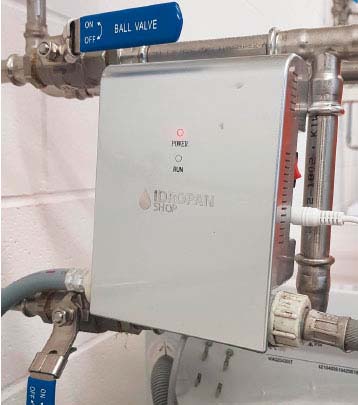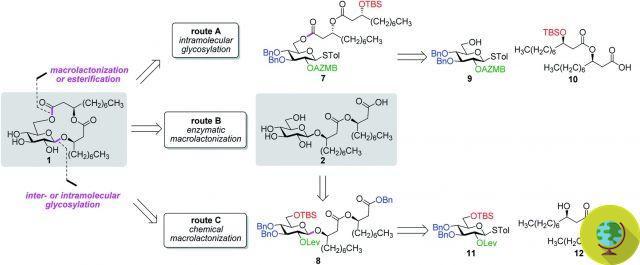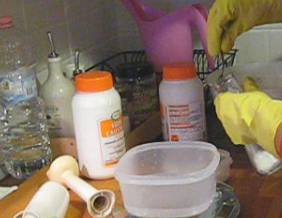Washing machine soap? self-produced of course!
He is about to end up run over, his mother saves himGenerally in large-scale distribution the laundry powder anything but eco-friendly, it is sold in captivating packs with dizzying illustrations and fragrances worthy of Hawaiian holidays, all in packs of about 2kg for a modest sum between € 3 and € 6, based on the various brands and promised performances. . But have you ever wondered what these magical powders really contain and above all what makes our laundry “whiter than whiter”? ... a little help? optical brighteners and chlorine derivatives are the masters here!
Often it happens then to have itching or irritation which we simply cannot explain: sometimes the problem can derive from the soap used to clean our clothes perpetually in contact with every cm of our skin or with the fantastic fragrances it contains!
Not to mention the fact that everything that goes down the drain finally reaches the sea and therefore its inhabitants (and therefore in the dishes of many humans!)
Most bleaching products also contain sodium perborate, which releases salts that are harmful to health, aquatic fauna and even tissues. Better to opt for the sodium percarbonate, which has the same function but is less harmful. Instead of disinfectants (such as bleach so widely and irresponsibly used!), vinegar and essential oils (lavender, rosemary, lemon and tea-tree) can be used which can very well replace traditional disinfectants.
If we then think of our grandmothers once they used the ash which they turned into lye for washing clothes, only after the Marseille soap and homemade soap with animal fats which derived from home slaughter (especially of pigs) but with the economic boom of the 50s-60s the housewife made the fantastic acquaintance with what would become her best ally and friend: the washing machine and with it her magical and inseparable companion , the laundry detergent mass-produced, all-rounder powder that promised to make everything white, shiny and as good as new!
But for some time we have all begun to ask ourselves what the things we use really contain and above all how they affect the environment in which we all live.
Here then is the market that is always ready to catch signs of change and here is the birth of miraculous balls that magically make our laundry clean thanks to their movement, the soap nuts perfectly biodegradable or the lye (made industrially, however!), a reminder of past times.
However, although all these products actually have a reduced environmental impact, if compared to the classic detergents on the market, we cannot but ask ourselves what results they really give?
Looking for a good substitute for laundry detergent to be used in the washing machine and maybe even handmade (in the name of reducing our impact on the environment and self-production, a form of independence that not only gives us autonomy, even thinking but which makes us free to choose!) and after having tried soap nuts (not at all satisfactory from my - and not only - point of view!), lye (which only partially satisfied me since the most difficult stains remained there as they are even after washing! ) and the grated Marseille soap (very difficult to find and which often required an extra rinse as it did not dissolve perfectly!) Now while I am waiting for my beautiful homemade olive oil and mint soaps to mature, I am undefeated in the recipe of Soule Mama (later revised danatixdelinquere) of his fantastic laundry powder and its "derivative" liquid detergent home made!
So how can you exempt yourself from experimentation?
So here I am ready for self-production: the first recipe is quick and practical; paper, pen and once you have found the "magic ingredients" voilà the laundry soap powder for the handmade washing machine is ready!
DETERGENT FOR WASHING MACHINE POWDER do-it-yourself

You will need:
- 1) Marseille soap vegetable to grate slowly! (as previously mentioned Marseille soap is very difficult to find because it does not have to contain Sodium Tallowate, the so-called bovine sego, it is the saponified fat obtained from slaughtering waste, therefore an animal fat. This unpleasant ingredient is found in almost all face and body soaps as well as being contained in all laundry soaps.
Among the other ingredients we also find Sodium Palmate and Sodium Palm kernelate, they are respectively saponified fats from palm and palm kernel. Although they are vegetable fats, from an ecological point of view they are not all that acceptable or still phosphates and fragrances.
Real Marseille soap should be made with olive oil, which in the INCI is recognized by the name Sodium Olivate and this will be the ingredient to look for.
Surely among the other ingredients there will beEDTA, an omnipresent and very harmful kidnapping. To these we then add limonene, citral, and as said perfumes in general. All products of a synthetic nature; I use that of the almacabio but also that of Nature's Worksheet or Ecor are perfect.
They can be found in all eco-bio products stores). An excellent alternative is to make your own soap, exactly as I do (the Veggie group "Soap E autoproduzioni" is useful for this for info and useful tips!)
- sodium bicarbonate
- sodium carbonate (soda x laundry and not caustic soda !!!)
- borax (I didn't put it and I found that it is already excellent!) Mix everything together in proportions 2: 1: 1 (: 1) and place in an airtight jar; from time to time shake the jar well to avoid the sedimentation of the soap flakes.
optional (to boost!):
To be used in dose: half a cup for a full load using white vinegar as a softener and if you want a few drops of essential oil dissolved in a spoonful of food alcohol at 95 °… .and anything other than “whiter than whiter”!
Tested by myself and… response?
Excellent: cold, 40 ° C, 60 ° C (eco for those who have it) excellent results both with darks and whites and with colors .... but I add it directly to the basket and not in the soap drawer of the washing machine!
Wonderful!
If you have persistent stains (encrusted, old or grass) the advice is to do as usual: pre-treat with Marseille soap directly on the stain!
Be careful not to use the product on wool (non-existent problem for me since I'm vegan!) Because soda doesn't get along very well!
LIQUID DETERGENT FOR DIY WASHING MACHINES.
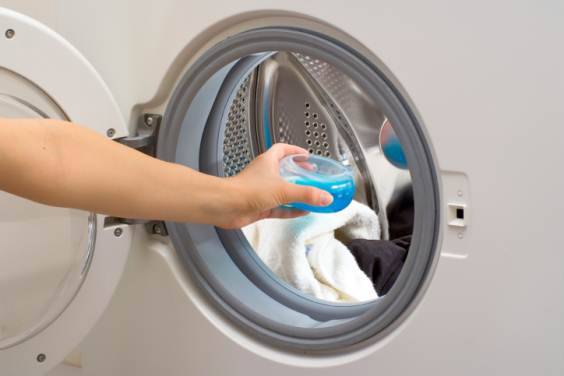
Obviously then I also tried the recipe for those (like me) who want liquid detergent instead of powder, which I prefer because I find it much more convenient (as simple as powder but it takes a little longer to prepare it!)
ingredients:
- Marseille soap
- soda x laundry
- bicarbonate
- cold distilled water
- warm distilled water
and or and to taste
in aspect ratio: 2: 1: 1: 4: 3.
what to do is very simple, just grate the soap, add it to hot water, melting it in a saucepan over low heat, then with the heat off, add the soda and bicarbonate and stir with a wooden spoon so that no lumps form and having the foresight to also give a few taps with the immersion blender if necessary then pour everything into an absolutely recycled detergent container, add cold water and a few drops of the o.e. chosen and shake vigorously for a few minutes, finally letting it rest for a few hours.
If necessary, then dilute it further with cold water and shake again.
Excellent especially for short and cold washes (the ones I prefer, since I am not a mechanic!) Because it does not create residue problems or does not need extra rinsing!
To be used in dose: one scoop of the recycled bottle (1 cap) per full load.
Also in this case it is possible to use thewhite vinegar as a softener and the essential oil dissolved in food alcohol at 95 ° to perfume.
Ultimately my advice is always think about the post-life in everything what we use and think about the environmental impact it has on the environment. Another thing not to forget is that what we use we can not only self-produce it (in the name of the 3Rs: reduce reuse recycle!) But also improve it by adapting it perfectly to our needs!
An example? produce a certain amount of detergent maybe in a couple of hours one day we have some free time and then always have it available in the following weeks!
And good self-production!
Kia - Carmela Giambrone
Read our guide on do-it-yourself detergents
Read all our articles on green laundry




